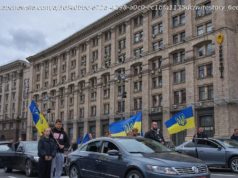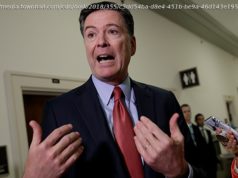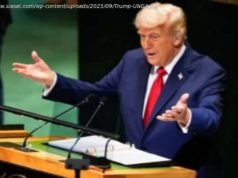We’ll give President Donald Trump this: The coordinated strikes over the weekend that apparently destroyed the heart of Syria’s chemical weapons…
We’ll give President Donald Trump this: The coordinated strikes over the weekend that apparently destroyed the heart of Syria’s chemical weapons program were a serious, disciplined and appropriate response to a regime seemingly bent on using such weapons against its own people. There was a time when such action was called presidential.
There is little question in our minds that leading the free world is more than a catch phrase attached to the American presidency. It’s also a mantle of leadership that requires enforcing a short list of international norms, including promoting political liberty and stopping the use of weapons of mass destruction. A significant part of that last responsibility entails making the use of WMD so onerous on rogue regimes that none dare try it.
If we have any criticism for the Trump administration, it comes in the form of pressure on what to do next. Now that the missiles have stopped falling, the shouting is already starting over the president’s use of force — and even his use of the phrase « mission accomplished. » It strikes us that the yelling is less about outrage over what the president did and more about constraining what he might do next.
What Trump, a mercurial president, might do next is develop a coherent strategy for American involvement in the Middle East. Heretofore, his administration has concentrated on defeating the Islamic State in hopes of getting out of Syria. The problem is that developments will likely keep drawing the U. S. back in so long as there are rogue regimes flouting international norms.
It may be too large of a point for our policy appetite just now, but the only long-term strategy that will likely enable the United States to safely step back is one that leads to political liberty for the people of the region. Regardless of when the shooting stops, the conflict fueling the civil war in Syria will only end once the people have a meaningful and ongoing say in their governance.
Syrian President Bashar al-Assad is likely using WMD because, more than territory, he wants to break the resolve of the people he seeks to dominate. The United States doesn’t have to engage in a massive military campaign to stop that. Indeed, dealing with this civil war will likely require sanctions, diplomacy and, sometimes, military action. Note that Trump announced new sanctions on Sunday aimed at Russia for supporting of Assad.
But in broad strokes, creating the kind of stability needed here will require a strategy for driving the region away from the rule of dictators. And pushing them back starts with using international coalitions to combat the use of WMD.
By lining up with the United Kingdom and France, Trump created, if you will, a coalition of the willing and took a step toward long-term stability. We hope he keeps walking down that path. What’s your view?
Got an opinion about this issue? Send a letter to the editor, and you just might get published.






